After a long but enjoyable – (lots
of movies to watch if one can’t sleep in planes) -25-hour or so plane travel
from Brisbane – mostly in the remarkably quiet and comfortable Airbus A380, I
landed in Nice early August 2015. After
a few days to get over the jetlag, my first destination was a quick stopover in
Munich, on my way to Sofia; Bulgaria’s capital.
I only spent 6 hours or so there but that gave me enough time to wander
about the city centre and indulge in some of the many pleasures that city has on
offer.
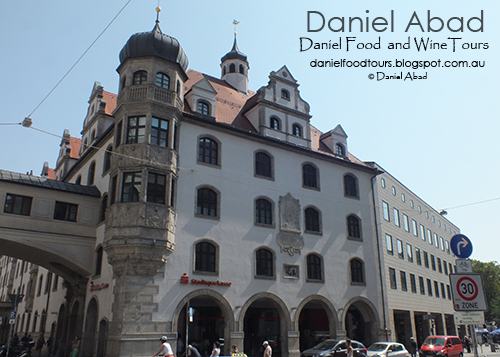 |
| Munich architecture |
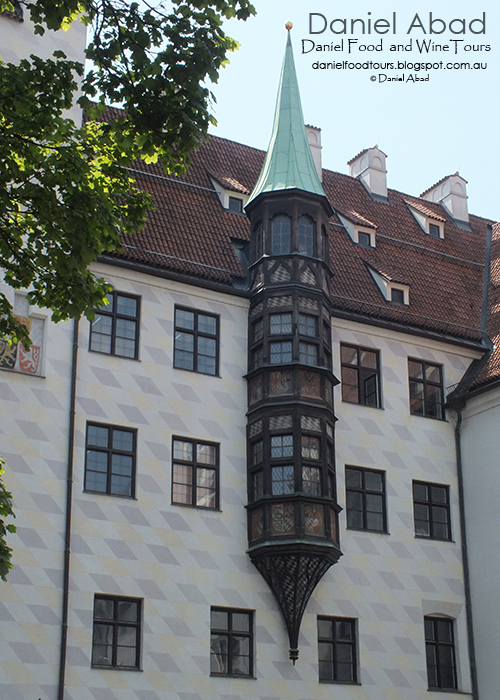 |
| Munich architecture, interesting addition |
 |
| Bagels and Sandwiches - Munich |
 |
| Pastries - Munich |
"You do not
even go somewhere else. I tell you
there's nothing like Munich. Everything
else is a waste of time in Germany"
Ernest Hemingway
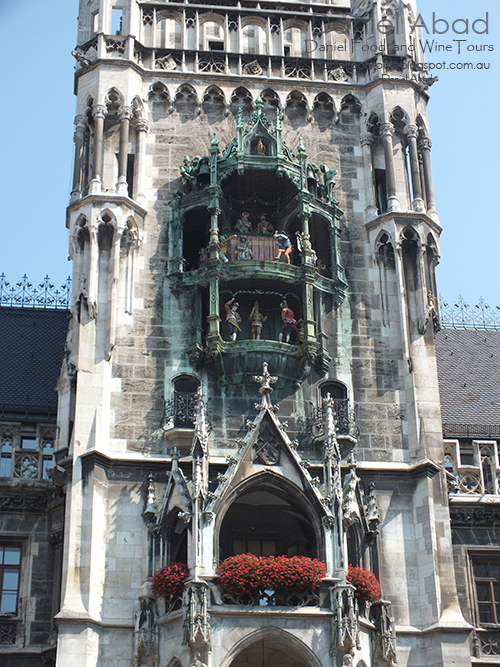 |
| Munich magnificence ... |
In
1806, the city became the capital of the newly established Kingdom of Bavaria. Following the
outbreak of World War I in 1914, Life in Munich became very difficult, as the
Allied blockade of Germany led to food and fuel shortages.
After
World War I, Adolf Hitler and the National Socialists rose to prominence. In November 1923 Hitler and his supporters,
who were then concentrated in Munich, launched the so called "Beer Hall
Putsch" in an attempt to overthrow the Weimar Republic and seize
power. The revolt failed, resulting in
Hitler's arrest and the temporary crippling of the Nazi Party, which at that
time was virtually unknown.
The
city once again became a Nazi stronghold when the National Socialists took
power in Germany in 1933. The Party
created their first concentration camp at Dachau, 16 kilometres north-west of
the city.
The
post war period was characterised by American occupation until 1949. Unlike many other German cities, which were
heavily bombed and destroyed during World War II, Munich rebuilt most of its
traditional cityscape. Munich was the site of the 1972 Summer
Olympics, during which Israeli athletes were assassinated by Palestinian
terrorists during the so called Munich massacre.A selection of aromatic pipe tobaccos
 |
| Jars of aromatic pipe tobacco - Munich |
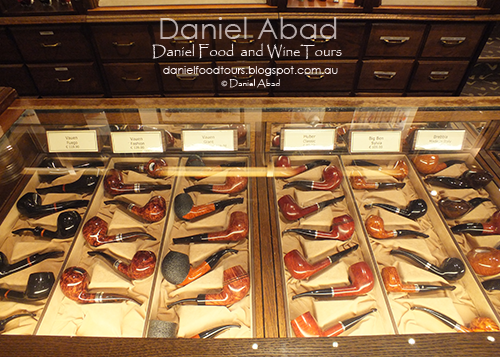 |
| Pipes - Munich |
 |
| Cigars - Munich |
 |
| Cigars - Munich |
 |
| Cigar presentation - Munich |
Being a non-smoker, I had
never ventured in such places before. I
couldn’t tell what impressed me most.
Was it the inviting aromas that filled the shops? Was it the impressive layouts, the impeccable
range and quality of the products on display or the level of professional
knowledge and service that the Staff provided in each of the places we visited? I left my brother to his search for the
newest or rarest tobaccos and wandered about the shops with my camera.
Once
done, we headed for what I considered the serious part of the stopover –
LUNCH!!! We selected the HOFBRAUHAUS; arguably the most famous beer hall worldwide, and
conveniently located in the city centre.
The
HOFBRAUHAUS also operates the second largest tent at the
Oktoberfest, one of Munich's most famous attractions.
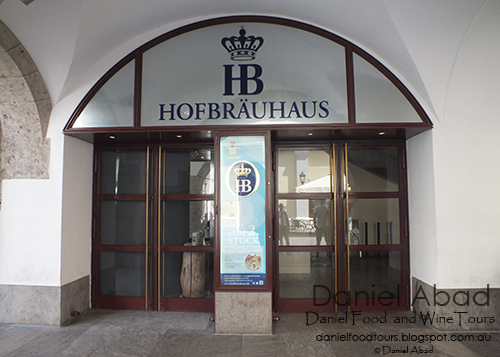 |
| Our lunch destination - Munich |
 |
| Inside the Beer House - Munich |
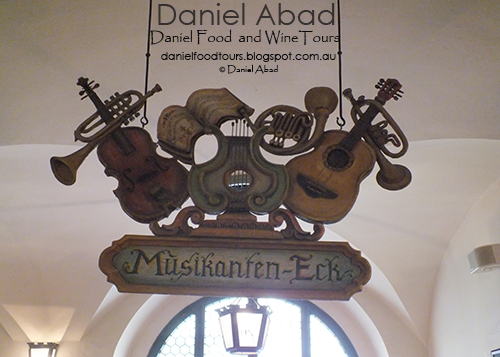 |
| Joie de Vivre - Munich |
Some traditional Bavarian music...
 |
| The Traditional Orchestra - Munich |
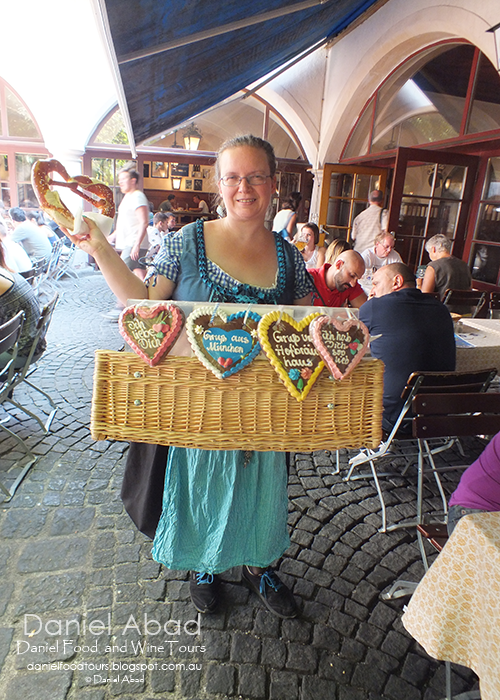 |
| The Bagel Lady - Munich |
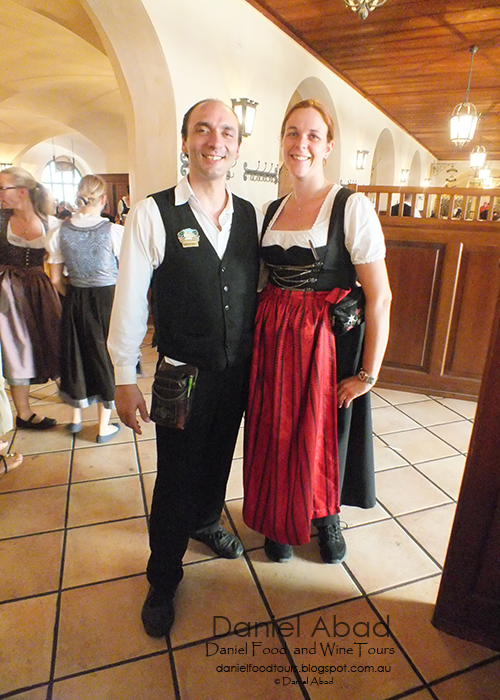 |
| The Staff |
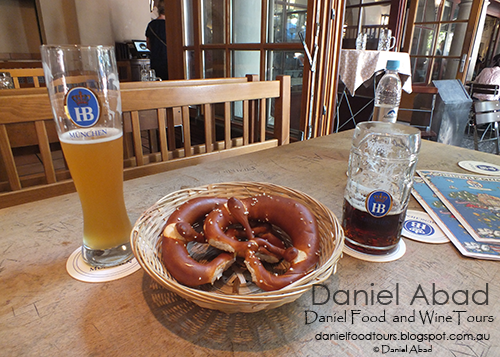 |
| Bagel and Beer - Munich |
Next
came the traditional sauerkraut and assortment of sausages.
 |
| Sauerkraut - Munich |
 |
| Pork and Dumpling - Munich |
Ø The Weissurste ('white sausage'), a Munich specialty. These are often served with sweet mustard (another
Munich/Bavarian specialty) and freshly baked pretzels. The skin has to be removed before the meat
can be eaten
Ø Leberkas – A Bavarian baked sausage loaf,
often served with potato salad and sometimes topped with a fried egg, is
another delicacy of the region
Ø The most famous soup might be the Leberknödel soup; a bread dumpling
seasoned with liver and onions
Ø Popular desserts include Apple Strudel with
vanilla sauce, Dampfnudeln (yeast dumplings served with custard) and Auszogene,
a fried pastry shaped like a large doughnut without a hole
We
skipped dessert and looked for a place to have a coffee. Not far from the HOFBRAUHAUS, we found the
perfect place and indulged in a small vanilla-flavoured cigar no bigger that a
cigarette - (I occasionally break the non-smoker rule) and a piping hot
espresso.
 |
| Coffee after lunch - Munich |


No comments:
Post a Comment